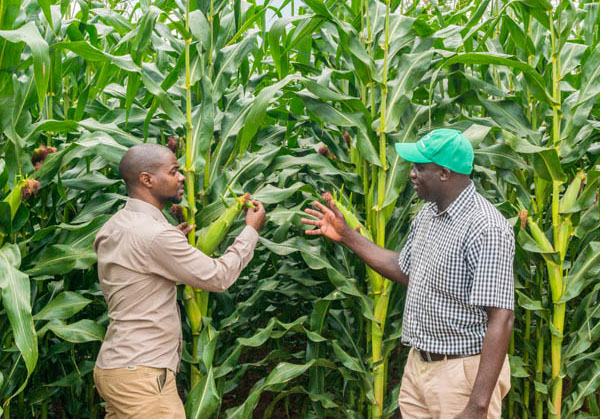BY IGNATIUS BANDA
Amid silent refrigerators spawned by crippling electricity cuts, township grannies are relying on their smarts and traditional preservation: roasting and smoking meat over fires as they attempt not to throw away food.
And this at a time more and more Zimbabweans are going hungry amid a combination of shrinking incomes and price increases.
For 79-year-old grandmother Tabeth Chisale, food and perishables, such as beef sourced by her children, fill the fridge, but she is increasingly frustrated by the unrelenting power outages.
“Recently, we went for seven days without electricity,” Chisale said
“We were informed it was not because of the regular power cuts but some thieves had vandalised the power supply,” she said, at a time there are increasing reports of the theft of copper cables and transformer oil from power base stations.
The country’s power utility has blamed erratic power supply on the vandalism of electricity infrastructure.
However, amid such a chaotic and erratic energy supply, grannies such as Chisale must find or have found ways of making the best out of a bad situation.
“Once I suspect the meat is going bad, I roast the meat over a fire, then hope that electricity will be restored in time.
“I then stew the roasted meat.
“You cannot watch the meat go bad in these trying times,” she said, her practice for many here a hard-to-understand culinary secret: first roasting meat, then boiling it
Smoking meat over a fire to preserve it has been around for centuries, but Zimbabwe’s energy crisis has reminded older generations of the practice at a time when large-scale enterprises such as butcheries are having to rethink how they do business.
Local food scientists have raised concerns about the consumption of bad or rotting food, noting that it reverses the small gains the country is making towards addressing nutrition deficits among children and the elderly.
In a country where supermarket shelves are stocked with expired food items, the practices of Chisale show the desperation of consumers, local analysts say.
For Desmond Mugadza, chair of the food science department at the Midlands State University, the answer is simple: “Avoid over-stocking perishables.”
“Food must be free from bio-hazards to ensure it is safe for consumers to eat as all food items have a shelf life,” Mugadza said.
“We should rely on science on whether food is safe to consume,” he added.
Yet the desperation of consumers such as Chisale has meant that they have sought ways to salvage their food without the support of science.
It has been a long practice here amid economic hardships that bargain hunters stock up on food and other basic commodities because of regular price increases, creating difficulties in how the food is stored in the absence of electricity.
However, the food preservation methods available to Chisale come with a downside: “The meat that I try to save doesn’t taste as it should, but it’s still meat,” she said.
In Zimbabwe, where the backyard poultry business has become the favoured source of income for the unemployed, power cuts have wreaked havoc for people such as Nelisiwe Mudimba.
“When you slaughter your birds, you pray that they will be sold before they go bad in the fridge,” Mudimba said, adding that on numerous occasions, she has had to throw away dozens of rotting chickens.
She says she has also tried smoking the chickens over a fire, feeding some to her dogs, but: “I cannot eat all these chickens.
“What’s the point, then, of operating such a business?”
These concerns come as global agencies lament the continued wastage of food when millions go hungry.
According to the Food and Agriculture Organisation, “One-third of food produced for human consumption is lost or wasted globally.
This amounts to about 1.3 billion tons per year, worth approximately US$1 trillion.”
While FAO says most food losses in developing countries are during post-harvest and processing levels, in countries such as Zimbabwe, power cuts have only added to the food waste crisis.
Local consumer rights groups say inflation has added to the challenges as those who already cannot afford basics face more headaches with trying to stock the little food available in their homes.
“Consumers are unable to buy basic commodities that they desperately need because of the increasing gaps between prices and incomes,” said Effie Ncube, spokesperson of a local consumer rights group.
“To prevent the unlawful sale of expired goods, two things are required. The first is to ensure thorough enforcement of the Consumer Protection Act.
Secondly, the government should address the root causes of the economic crisis that has led to runaway inflation, lack of incomes, and general price volatility,” Ncube said.
For now, Chisale and her peers continue to seek old ways to address new challenges and make their own local desperate efforts not to throw away food, albeit against their will. – IPS


 Slider3 years ago
Slider3 years ago
 National4 years ago
National4 years ago
 Tourism and Environment4 years ago
Tourism and Environment4 years ago
 Opinion4 years ago
Opinion4 years ago
 Special reports4 years ago
Special reports4 years ago
 National4 years ago
National4 years ago
 National3 years ago
National3 years ago
 National3 years ago
National3 years ago


